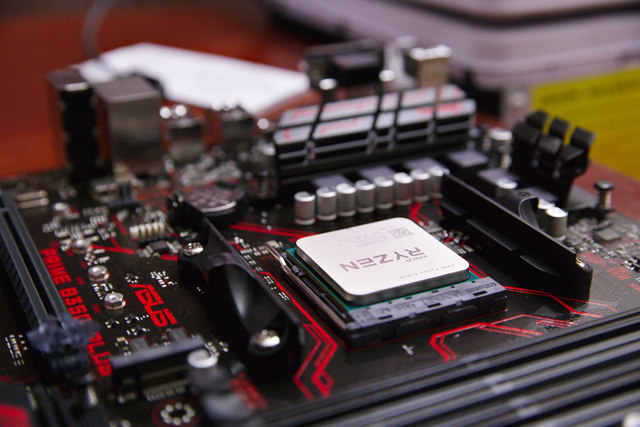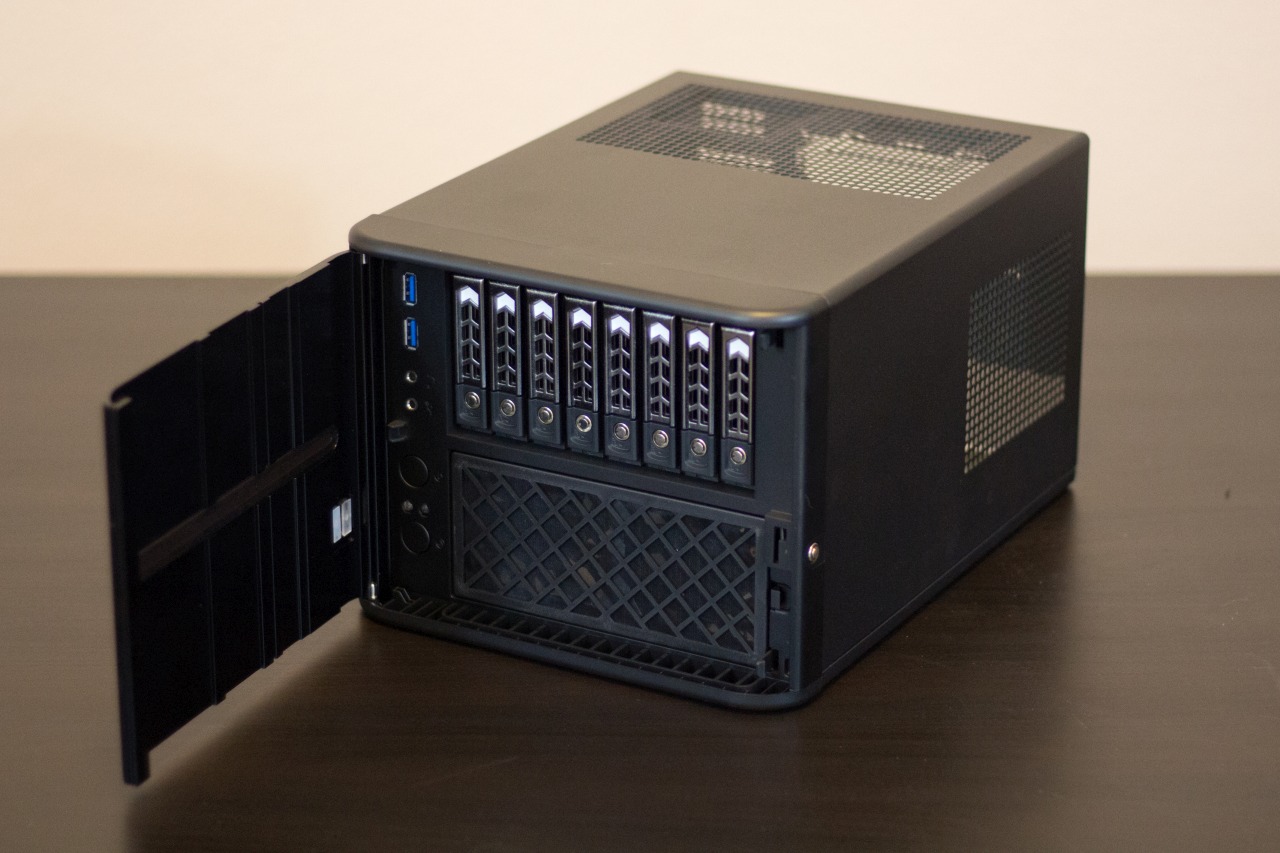Pat's Thoughts on the Ryzen 9 3900X and 3950X
Everyone is excited about the new Ryzen 3950X. They say the 16-core Ryzen 9 3950X beats Intel’s 18-core i9-9980XE in both single-core and multi-core performance while costing $1,250 less. That is something to be excited about, but it isn’t what I find interesting.
My own workload at home is spread out between two machines. My desktop machine is a Ryzen 5 1600, and my virtual machine host is currently an AMD FX-8350. Both machines have 32 GB of RAM.

This works great for me. The 6-core Ryzen 1600 was a reasonable gaming CPU, and it still is. It wasn’t all that much slower than its 8-core siblings whemn it comes to multi-core workloads. I’m constantly tempted to upgrade to a Ryzen 3600, but that’s not terribly relevant to this conversation.
My virtual machine host’s most important jobs are hosting my NAS, the infrastructure for testing and deploying new content to patshead.com and butterwhat.com, and my OctoPrint server. It is good for me to have these things on an entirely different piece of hardware. If the latest Nvidia driver winds up having serious issues while I’m playing a game of Team Fortress 2, I don’t want either of my blogs to stop deploying themselves while I’m rebooting or troubleshooting.
- Building a Low-Power, High-Performance Ryzen Homelab Server to Host Virtual Machines at patshead.com
- Can You Run A NAS In A Virtual Machine? at patshead.com
- DIY NAS: 2019 Edition at briancmoses.com
Two machines used to cost less, too!
At the time when I built this Ryzen 1600 machine, I could have built a pair of these machines for quite a bit less than the price of a single Threadripper build. Threadripper motherboards cost quite a bit more, and the processors weren’t cheap, either!
The situation would be different today, and I find that to be quite intriguing! The $750 16-core Ryzen 9 3950X is roughly twice as fast as a $250 6-core Ryzen 5 3600X. Sure, the 3950X costs three times as much, but if I had to build a pair of 3600X machines, I’d have to buy a second case and motherboard. I’m making the assumption that the disks and RAM in this hypothetical 3950X build of mine could be divvied up neatly between a pair of hypothetical 3600X machines.
I’m much more excited about the Ryzen 9 3900X
The 3900X feels like a much better value to me. According to the benchmarks, the 12-core 3900X has roughly 85% of the mult-icore performance of the 3950X, but it is priced at $500. If you squint your eyes, you could almost say that the 3900X and 3950X are both almost twice as fast as a Ryzen 3600X.

The 3900X feels like the sweet spot to me. It is only $500? It is almost as fast as a pair of $220 Ryzen 3600 processors, and I would only need to pay for one motherboard?
This is a good value!
- Building a Low-Power, High-Performance Ryzen Homelab Server to Host Virtual Machines at patshead.com
- Can You Run A NAS In A Virtual Machine? at patshead.com
- DIY NAS: 2019 Edition at briancmoses.com
The Ryzen 3900X and 3950X will work in older Ryzen motherboards
I just checked Asus’s website. The old Asus B350-Plus motherboard that currently resides in my desktop supports three of the four Ryzen 9 processors, including the 3900X and 3950X. The Ryzen 9 Pro 3900 is not yet on that list. This motherboard used to be in my virtual machine host, but some hardware swapping between my desktop and KVM server happened a while back!
If I upgrade my Ryzen 1600 to a 3900X or 3950X, I won’t realize the full potential of the upgrade. My memory is slower, and support for faster memory with my old motherboard is lacking. Even so, I think it is great that the option is even available to me!
Why isn’t the 3950X more than twice as fast as the 3600X?!
It has more than twice as many cores, so you might think the 3950X should be a good bit more than twice as fast as the 3600.
Things just don’t scale that way. All those cores are fighting to use the same disk, memory, and some of the cache. Every time you add an addition core, each core has to share a smaller piece of that pie. You’re not adding lanes to the road.
Every time you add a core, you will see diminishing performance gains.
Don’t count cores. Pay attention to how much performance you’re getting for your dollar, and don’t forget to count the price of the motherboard when comparing processors that use different sockets!
You’re confusing me, Pat! Why isn’t your virtual machine host running a Ryzen 1600 anymore?!
My virtual machine host doesn’t do much heavy lifting. I decided that my plan was to downgrade the server to something slower, cheaper, and more efficient.
So I swapped the Ryzen 1600, the B350-Plus motherboard, and the RAM from my KVM server into my desktop. I moved my desktop’s old AMD FX-8350 to the server. I bought another identical B350-Plus motherboard and an Athlon 200GE.
The parts are here waiting for me to make the swap. I just never got around to it, and at this point, the hardware is so old that it really doesn’t matter. I did a bad job!
Conclusion
I’ve been tempted to upgrade my Ryzen 1600 to a Ryzen 3600 for a long time. I don’t quite have enough horsepower to run OBS and Team Fortress 2 at the same time. My frame rates drop well below the 120 Hz refresh rate of my monitor while streaming!
Should I skip the Ryzen 3600 and upgrade to a Ryzen 9 3900X? Would you be interested in seeing how that works out in my old B350-Plus motherboard? Should I splurge on a 3950X, even though it would probably be a slower gaming CPU than the 3900X? Let me know in the comments, or stop by the Butter, What?! Discord server to chat with me about it!
- Building a Low-Power, High-Performance Ryzen Homelab Server to Host Virtual Machines at patshead.com
- Can You Run A NAS In A Virtual Machine? at patshead.com
- DIY NAS: 2019 Edition at briancmoses.com